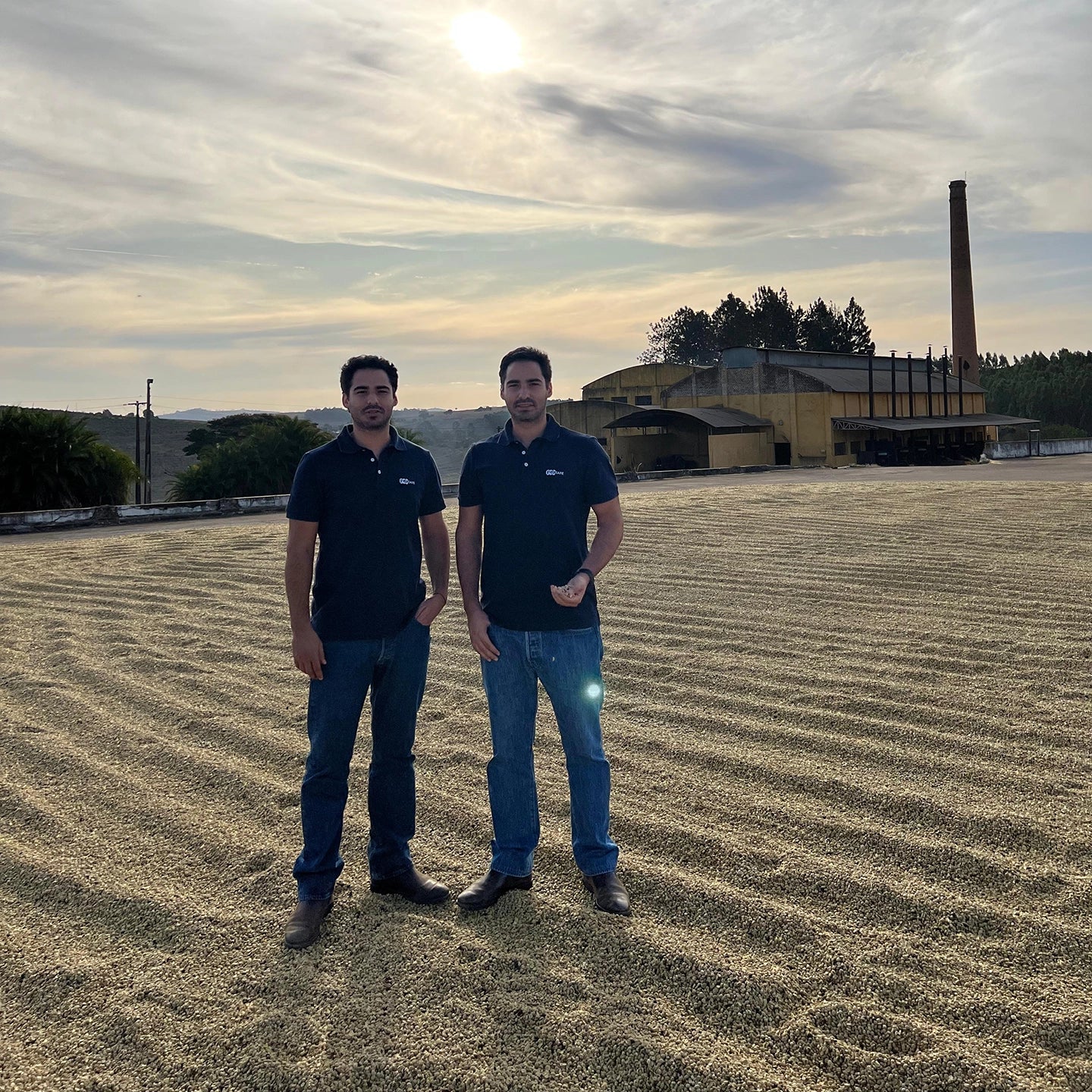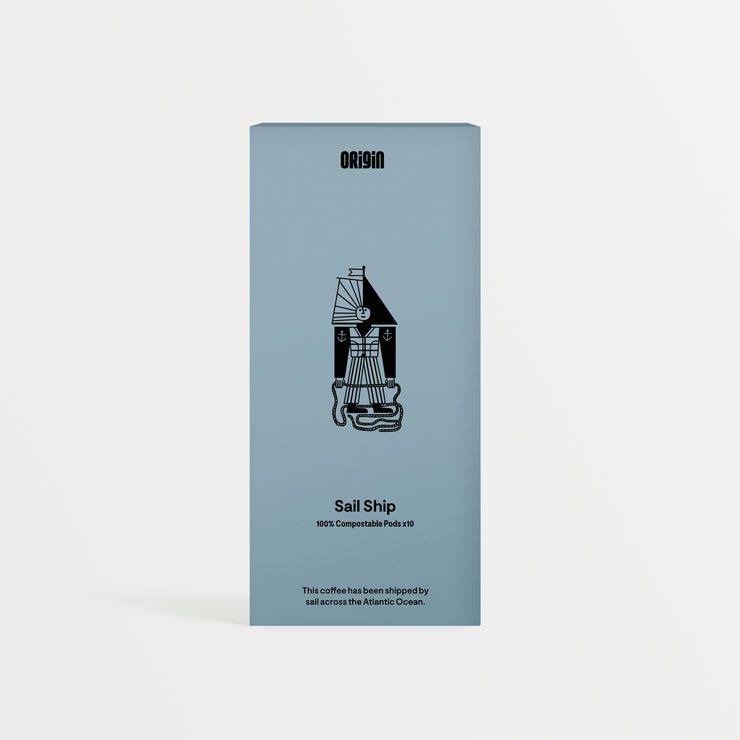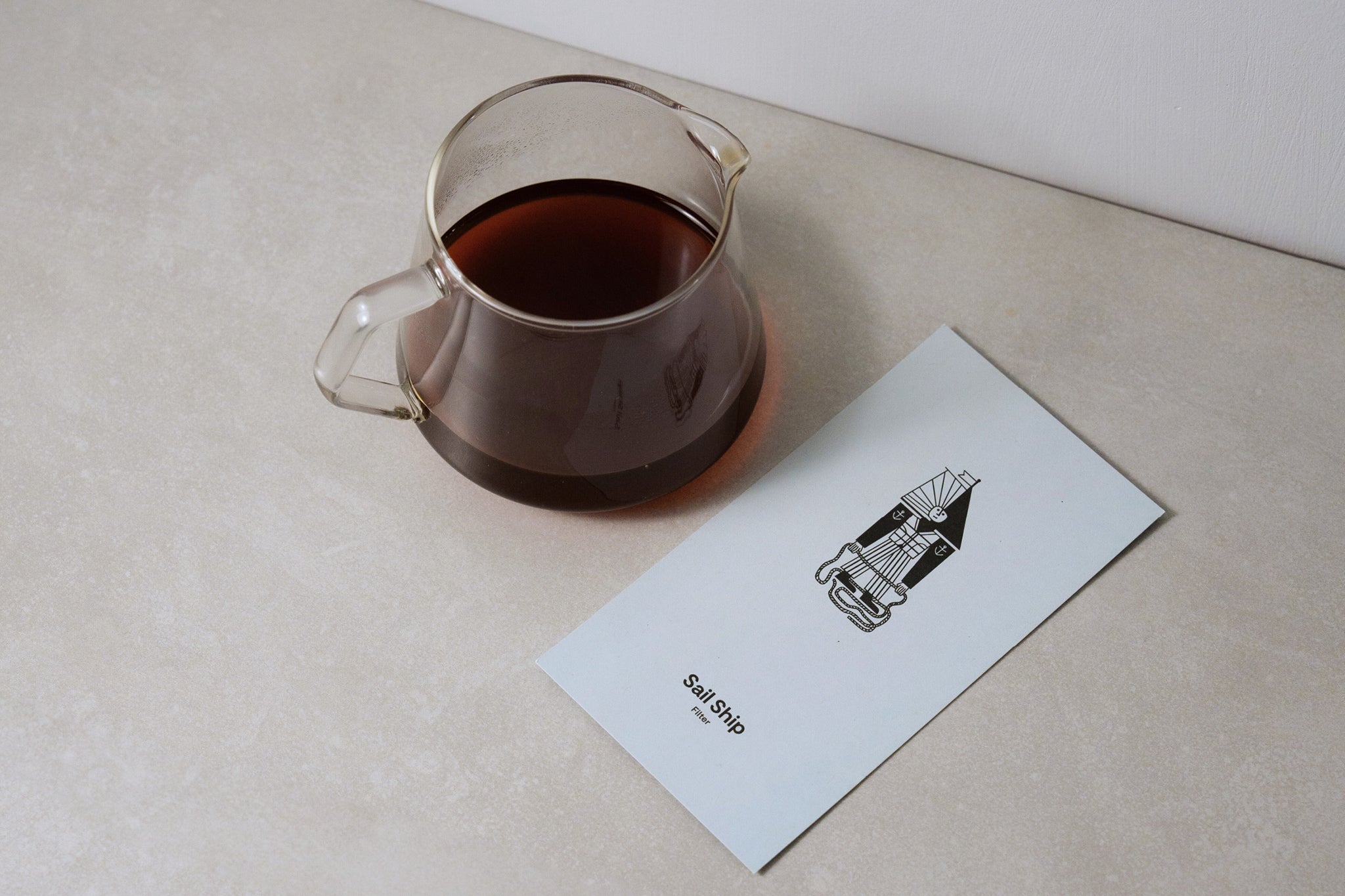
Sail Ship Coffee
A Better Way to Transport Coffee
Introducing our first ever coffee transported by sailboat across the Atlantic Ocean: Sail Ship. We’re always looking for ways to tread more lightly. It’s part of being a B Corp business, but it’s also been at the heart of Origin’s mission from the very beginning.
Our commitment lies in changing mindsets and practices while meeting global standards of social and environmental performance, transparency, and accountability. We are thrilled to be welcoming Sail Ship coffee to our line-up: a project that embodies this commitment, and exemplifies how coffee can be a driver for positive change.
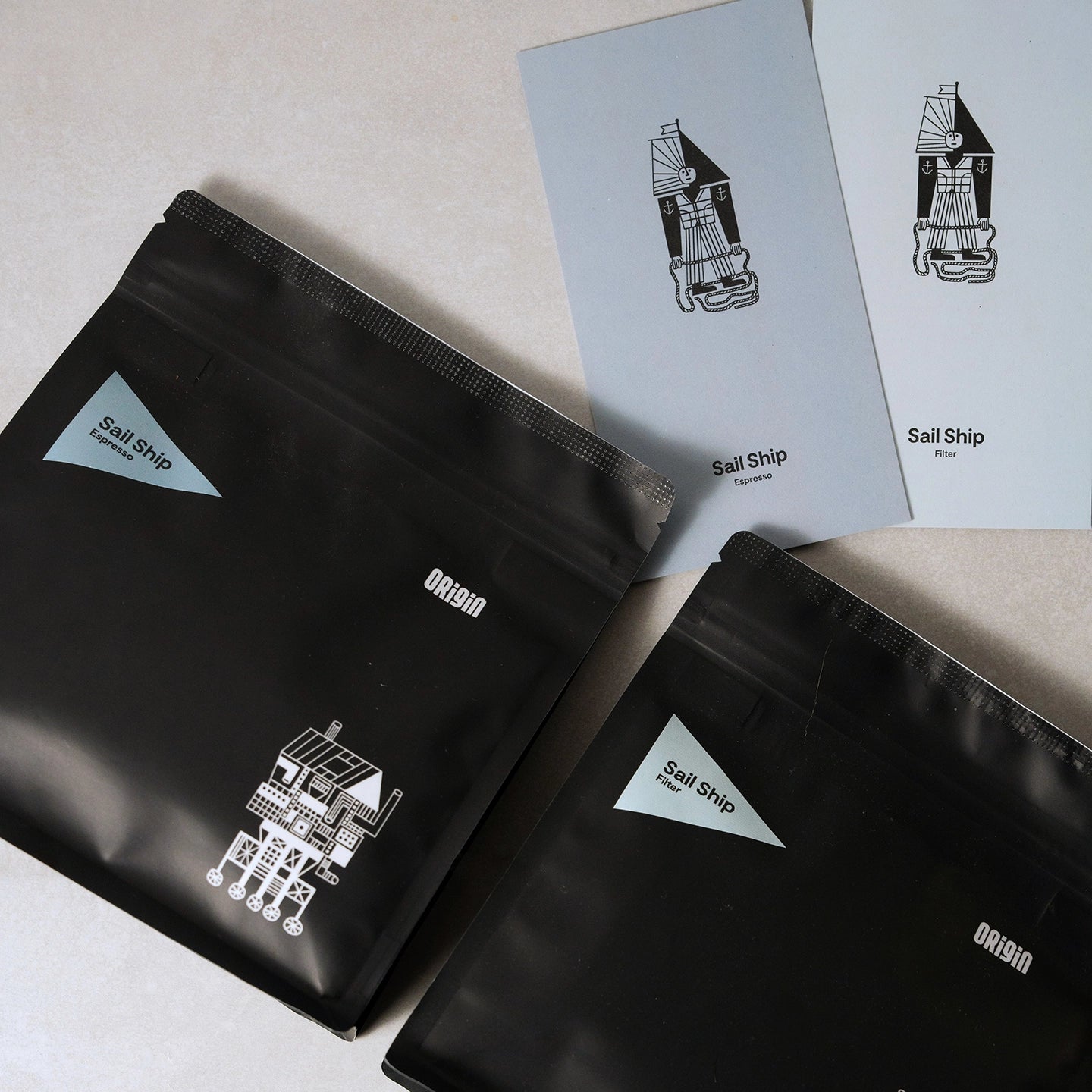
The Coffee
The Journey
The coffee’s journey from Brazil to Cornwall begins aboard one of the world's first industrial-scale, sail and solar-powered, decarbonised cargo ships, before embarking on a voyage across the Atlantic to Le Havre, France. This innovative sailing vessel is the creation of TOWT, a company revolutionising maritime transport by reviving the traditional concept of sailing cargo vessels with modern technology. We're proud to be supporting TOWT with early adoption, and thrilled to share our first steps towards a much larger commitment to this movement.
Our goals are ambitious for the wider scope of this project. We envision and have mapped out a significant increase in the volume of our coffee shipped this way in the coming years. As our shipping volume increases, we'll work towards key milestones, including commissioning the ship to dock directly in the UK. While current logistical and cost constraints necessitate road transport from France, direct UK docking will eventually allow us to eliminate this leg of the journey, and the associated emissions.
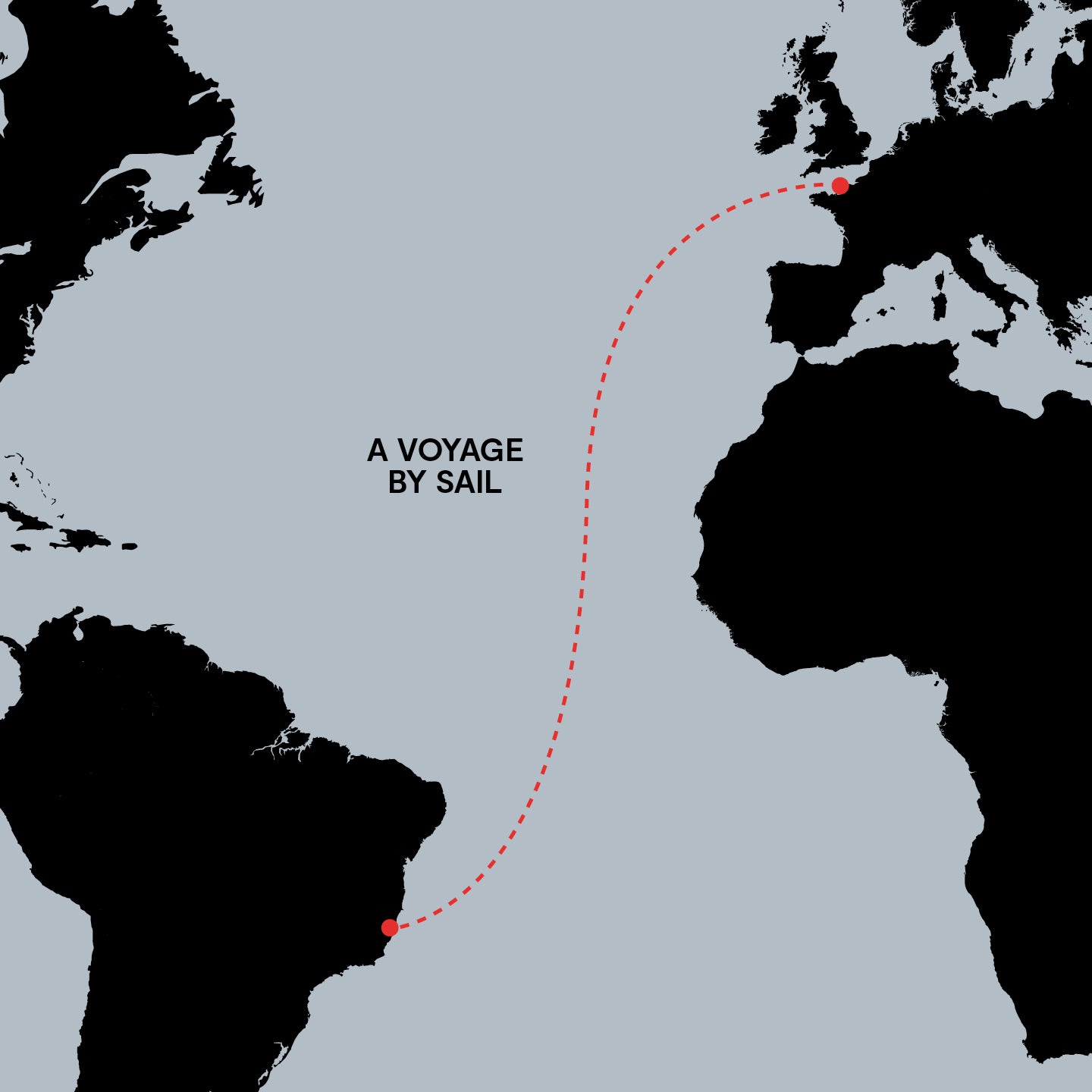
The Environmental Benefits
One of the biggest challenges in achieving carbon neutrality for coffee is transportation. With maritime transport emissions accounting for around 3% of global CO2 emissions*, and a staggering 20% of sulphur dioxide and nitrogen dioxide emissions worldwide**, sailboats are gaining traction as a sustainable transport option.
Sail cargo can achieve between a 95%-84% reduction in CO2 emissions compared to average container carriers. Diesel container carriers emit between 10.2 and 33.1gCO2/t.km***, while sail cargo emits only 1 gCO2e/t.km****. This means, our Sail Ship coffee could reduce CO2 emissions by as much as 3.9 tonnes CO2e per container compared to average diesel-powered sea freight.
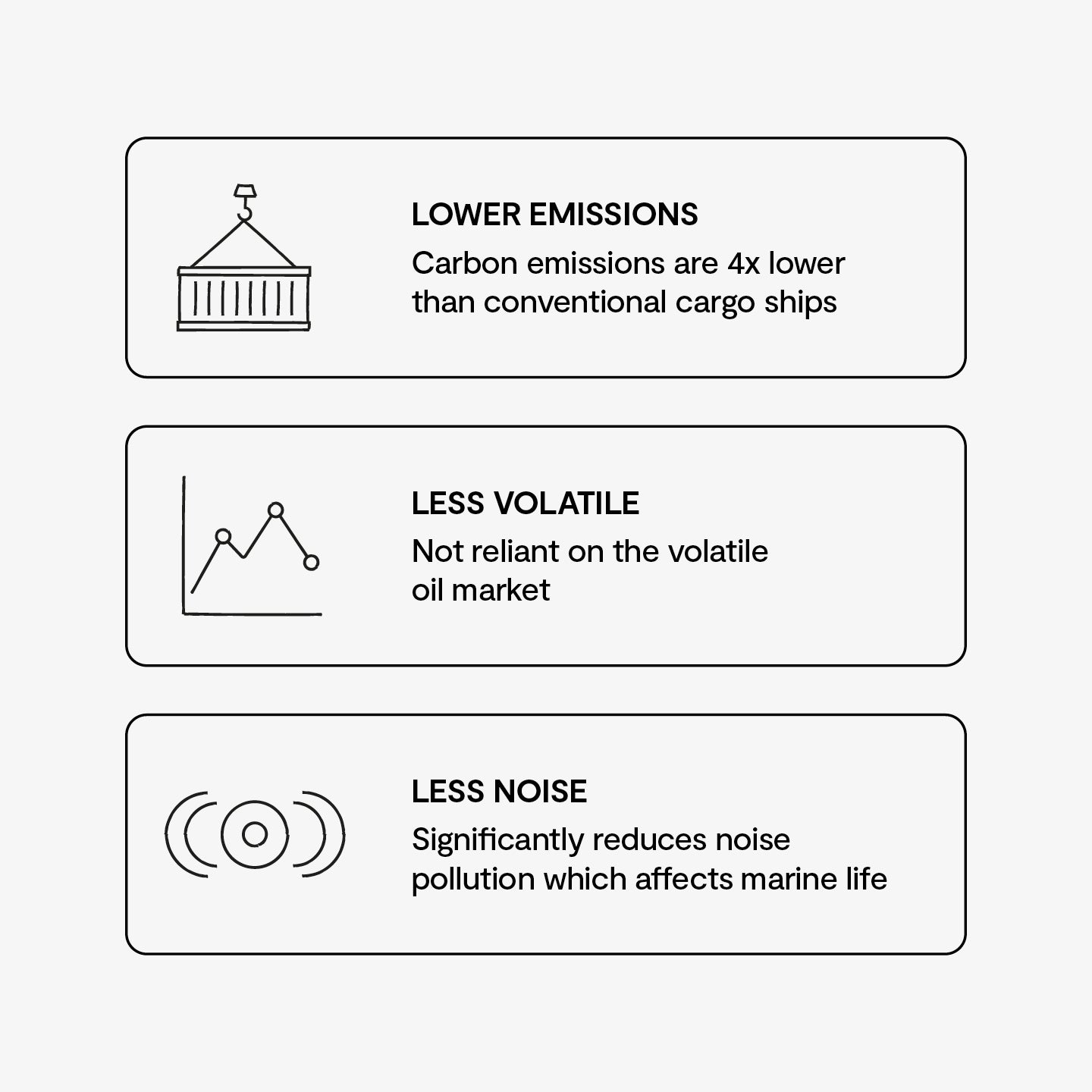
“The revival of cargo transport under sail ship offers so much opportunity, and we are thrilled to be adopting wind propulsion as part of our carbon reduction strategy. By sailing coffee, we're joining our producers on a journey to harmonise with nature and deliver exceptional, specialty coffee in the face of rising climate challenges.”
Coffee in Focus
Championing conscious cultivation and community values, our Sail Ship coffee brings together the finest varieties of the Menezes Ribeiro family farm: Mundo Novo, Acaia, Icatu and Yellow Catuai. With a near constant temperature of 20°C all year round, and shade provided by the hilly topography, the farm’s geographical location is ideal for quality coffee production. Low-impact natural processing produces a sweet and balanced profile that showcases the beautifully unique terroir of the Mogiana region.
We’ve roasted Sail Ship coffee two ways, to suit espresso and filter brewing, and is also available as Nespresso® compatible, certified home compostable pods.

Producer in Focus
Third-generation coffee farmers and brothers Fernando and Felipe Menezes Ribeiro converted their family's São Paulo farm from commodity to specialty coffee production back in 2018. This transition helped them command premium prices for their product, ensuring a better livelihood for their community of dedicated workers. With a focus on responsible land stewardship, the brothers cultivate coffee on their 150-hectare plot in Brazil's lush Mogiana region, ensuring the coffee plants coexist harmoniously with native woodland and wild flora.
